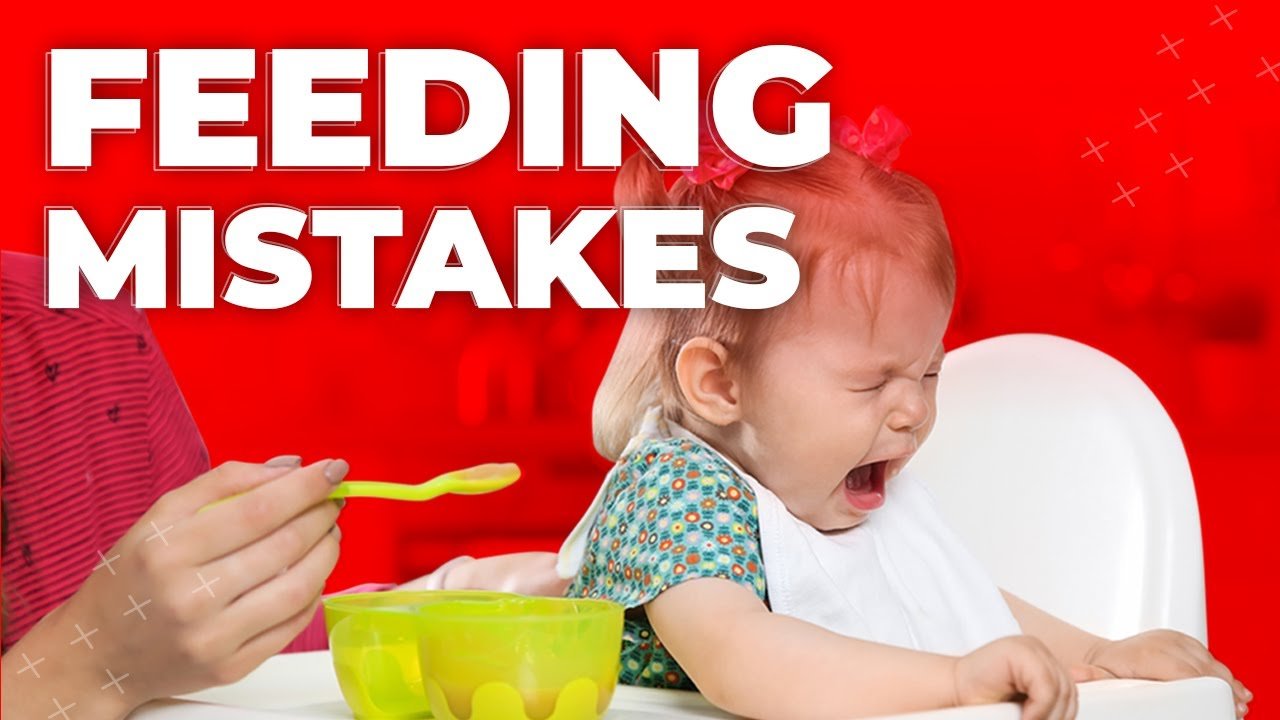When it comes to introducing solids to your baby, it can feel overwhelming at first. There are six common mistakes that parents often make when starting their baby on solids, which can impact meal times. From giving up on food too quickly to choosing the wrong high chair, these mistakes can make meal times harder than they need to be. By avoiding these mistakes, you can make introducing solids to your baby much easier and more enjoyable for both of you.
Whether you are following the baby led weaning approach or starting with pureed food, it’s important to be aware of these mistakes. By understanding what they are and how to avoid them, you can set yourself up for successful mealtimes with your little one. Remember that seeking professional advice for any health concerns is always a good idea when introducing solids to your baby.

Understanding Readiness
When it comes to introducing solids to your baby, understanding their readiness is crucial. Signs of readiness include being able to sit up with support, showing interest in food, and being able to control their head movements. It’s important to wait for these signs before starting solids to ensure that your baby is developmentally ready for this new phase.
Choosing the Right Time
Deciding when to start solids can be a daunting task. It’s generally recommended to start around 6 months of age, as this is when most babies are developmentally ready. It’s also important to consider your baby’s individual development and readiness before introducing solids. Waiting until your baby is physically and emotionally ready can help make the transition smoother and more successful.
Selecting the Right Foods
When it comes to introducing solids, it’s important to start with single foods to monitor for any potential allergies. Gradually introducing allergenic foods can help identify any sensitivities early on. Additionally, incorporating a variety of foods into your baby’s diet can help promote healthy eating habits and ensure they are receiving a balanced nutrition.
Methods of Introducing Solids
There are different approaches to introducing solids, including traditional weaning, baby-led weaning, and a combined approach. Each method has its own benefits and challenges, so it’s important to choose the one that works best for your baby and family. Traditional weaning involves spoon-feeding purees, while baby-led weaning allows babies to feed themselves soft, age-appropriate foods. A combined approach incorporates elements of both methods to create a customized feeding plan for your baby.
Avoiding Common Mistakes
There are several common mistakes parents make when starting solids, including giving up on food too quickly, limiting mess, starting solids too early, feeding baby separately, overfeeding, and choosing the wrong high chair. Avoiding these mistakes can help make meal times easier and more enjoyable for both you and your baby. By being mindful of these pitfalls, you can create a positive feeding experience for your little one.
Creating a Positive Mealtime Environment
Establishing a routine around meal times can help create a positive environment for your baby. Involving your baby in meal preparation, creating a calm atmosphere, and offering a variety of textures and flavors can make meal times enjoyable and engaging for your little one. By setting the stage for a positive feeding experience, you can help instill healthy eating habits from an early age.
Monitoring Baby’s Response
It’s important to monitor your baby’s response to new foods to identify any signs of food allergies or digestive issues. Keeping track of portion sizes and observing how your baby reacts to different foods can help you tailor their diet to meet their individual needs. Adjusting portion sizes and being attentive to any changes in your baby’s behavior or health can help ensure that they are receiving the nutrition they need.
Seeking Professional Advice
If you have any concerns about your baby’s diet or health, it’s important to consult a pediatrician or a registered dietitian. These professionals can provide guidance and support to help address any health concerns and ensure that your baby is receiving adequate nutrition. Seeking professional advice can help you navigate the challenges of introducing solids and provide you with the knowledge and resources you need to support your baby’s health and wellbeing.
Introducing Drinking Water
Introducing water to your baby’s diet is an important step in promoting hydration and overall health. Knowing when to offer water and the importance of hydration for babies can help ensure that your little one is getting the fluids they need to stay healthy. Water can be introduced gradually alongside solids to help support your baby’s growing nutritional needs.
Conclusion
Introducing solids to your baby can be a rewarding experience when done thoughtfully and with care. By understanding your baby’s readiness, selecting the right foods, avoiding common mistakes, and creating a positive mealtime environment, you can set the stage for healthy eating habits that will benefit your baby for years to come. Remember to seek professional advice for any health concerns and monitor your baby’s response to new foods. Enjoy this new milestone in your baby’s development and embrace the journey of introducing solids with confidence and positivity.

